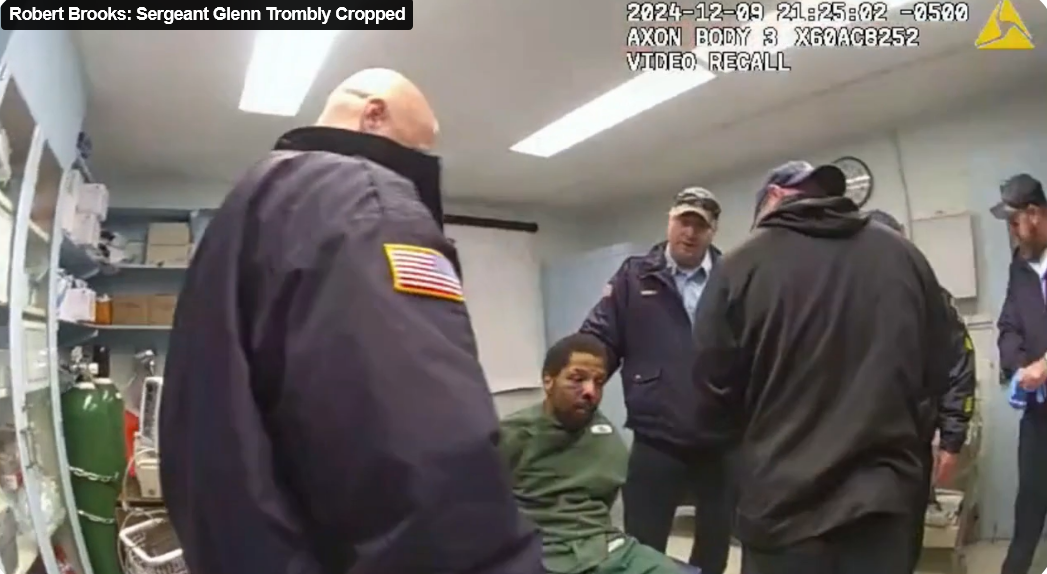Eric Schneiderman
[Speaking Truth To Empower]
Last week, former New York Attorney General Eric Schneiderman had a swift precipitous fall from grace, resigning hours after The New Yorker published a bombshell expose alleging Schneiderman sexually abused four women. The revelations have shocked politicians and press pundits, since Schneiderman presented himself as a liberal champion of women and a supporter of the #Me-Too Movement.
Yet in all the hullabaloo, one essentially important point is missed: the duplicity Schneiderman is allegedly guilty of isn’t at all unusual among lawyers and judges. I will review the allegations against Schneiderman before turning my telescope elsewhere. Schneiderman is the latest high-profile man who has witnessed his career crash because of sexual misconduct and abuse allegations. He now joins a long list which includes: Harvey Weinstein, Bill Cosby, Al Franken, John Conyers, Matt Lauer, and Charlie Rose to name a few.
Schneiderman has been accused by four women, who he was intimate with, of sexual abuse. Two of these women, Michelle Manning Barish and Tanya Selvaratnam, told their stories to The New Yorker. They tell tales of sexual abuse that may be linked to alcoholism. Schneiderman professed his innocence. “In the privacy of intimate relationships, I have engaged in role-playing and other consensual sexual activity,” Schneiderman said. “I have not assaulted anyone. I have never engaged in nonconsensual sex, which is a line I would not cross.”
Schneiderman then promptly resigned within hours of the story breaking, with probable pressure being applied by Governor Andrew Cuomo who is up for re-election. Cuomo stated: “No one is above the law, including New York’s top legal officer.” The governor added: “I will be asking an appropriate New York District Attorney to commence an immediate investigation and proceed as the facts merit. My personal opinion is that, given the damning pattern of facts and corroboration laid out in the article, I do not believe it is possible for Eric Schneiderman to continue to serve as Attorney General, and for the good of the office, he should resign.”
After Schneiderman’s swift fall, White House adviser Kellyanne Conway tweeted “gotcha,” in celebration of Schneiderman’s downfall. There’s no “taking the high road” with these petty individuals. Someone should tell Mrs. Conway she shouldn’t throw stones given the fragile glass house she works in. Has Conway forgotten that at least 19 women have accused Donald Trump, her boss, of sexual assault and misconduct? Perhaps, Conway should be reminded of these women. Here’s the list: Jessica Leeds, Kristin Anderson, Jill Harth, Cathy Heller, Temple Taggart McDowell, Karena Virginia, Bridget Sullivan, Tasha Dixon, Mindy McGillivray, Rachel Crooks, Natasha Stoynoff, Jennifer Murphy, Jessica Drake, Ninni Laaksonen, Summer Zervos, Cassandra Searles, Mariah Billado, Lisa Boyne and Samantha Holvey. It should also be noted that Donald Trump’s first wife, Ivana, accused him of sexual abuse during their marriage.
Of course, Trump and his sycophants say all these sexual allegations are lies—including Stormy Daniels’ allegations that she and Trump had an affair. The dark clouds continue to gather for Conway’s boss who, recently, hired the abhorrent race-arsonist Rudy Giuliani; the former mayor who was renowned for his animus towards African Americans has quickly dug a deeper hold for his new boss.
Back to Eric Schneiderman, a man who was a powerul man until last week. His fall is comparable to Eliot Spitzer’s demise when he resigned as governor in 2008, amid revelations that he was “Client 9,” of the Emperor’s Club VIP, an escort service. Spitzer, while he was New York Attorney General, prosecuted others for prostitution. As a result of the accusations, Schneiderman has been singled out as an anomaly within America’s legal circles.
He isn’t.
In America’s courts and the judiciary generally, duplicity goes with the territory. Schneiderman isn’t the only officer of the court exposed in a Me-Too scandal. Recall that Ninth Circuit Court Judge, Alex Kozinski, was the chief judge until he was forced into retirement last December after numerous women came forward documenting decades of sexual misconduct. Nashville Judge Casey Moreland is currently in jail as he awaits trial on obstruction of justice charges. Moreland is alleged to have used his judicial position to help women facing prosecution —in exchange for sexual favors. He then allegedly tried to obstruct an FBI investigation into these matters. Last year, we witnessed the spectacle of former Alabama Judge Roy Moore’s campaign run for the U.S. Senate—while nine women accused him of sexual assault and misconduct.
Some of these women were as young as 14, when, they allege, Judge Moore assaulted them. Moore allegedly assaulted some when he was a state prosecutor. Moore was defeated because Black Alabamans, especially women, determined that an alleged pedophile wouldn’t be rewarded with a U.S. Senate seat. African-Americans pushed back the barbarian Moore and helped elect Democrat Doug Jones. Moore was supported by another high-profile alleged serial sexual predator: President Donald Trump.
Many are focusing on Schneiderman’s alleged immorality because it is of a sexual nature, happening in the time of the Me-Too Movement. Why is immorality, usually, seen only in sexual terms? We need a broader view if we are to arrive at a better space in this country. White prosecutors and judges pervert the very concept of true justice daily, against African-Americans. The immorality there is just as evil—and in some cases, much worse than their sex crimes.
White America likes to lecture the world that America is supposedly “a nation of laws” where the “rule of law” is impartial. Black Americans know while these principles are printed on paper they are practiced, very often, selectively. The “rule of law” has never applied equally to everyone—especially, if you are Black in this country. The White citizenry too know this. Let’s consider a number of cases. On July 14, 2014, 43-year-old Eric Garner was strangled to death by a White police officer of the New York Police Department (NYPD) named Daniel Pantaleo, on Staten Island, New York. Less than a month later, on August 9, 18-year-old Michael Brown was shot to death by an officer named Darren Wilson, in Ferguson, Missouri. Both deaths were then “legally” justified by perverted prosecutors.
We’ve all heard the saying a grand jury can indict a ham sandwich. Let’s examine a few cases where prosecutors undermined this theory to exonerate killer-cops who take Black lives. In the Garner case, then Staten Island District Attorney Dan Donovan, now a congressman, apparently finagled the grand jury’s non-indictment of Garner’s killer, Pantaleo who remains on the NYPD payroll. Donovan seems strategically to have decided to omit the charge that would’ve been easiest to secure indictment: reckless endangerment. The secret grand jury proceedings also, conveniently, allowed Donovan to tell us nothing about these grand jury deliberations.
American prosecutors often go to great lengths not to disclose evidence that can undermine their case. Such individuals don’t care about justice. They play with people’s lives. In Donovan’s case he had an eye to higher electoral office –congress– and didn’t want to antagonize potential voters in a constituency with significant numbers of conservative Whites. Why vigorously prosecute a White officer for killing a Black man? In Ferguson, why, in the Michael Brown case, did prosecutor Bob McCulloch act as Darren Wilson’s de facto defense attorney by berating and undermined witnesses for his prosecution? Several legal experts accused McCulloch of sabotaging his own grand jury. Again perversion of justice — why indict and potential have convicted a White officer for killing a Black man even though he was unarmed and helpless?
In the Tamir Rice case, prosecutor Tim McGinty seemingly orchestrated the non-indictment of Officer Timothy Loehmann, who shot the 12-year-old boy within two seconds of seeing Rice—playing in a park, across the street from his home. McGinty, and the City of Cleveland, had the nerve to blame this 12-year-old for his own death, saying Rice didn’t “exercise due care to avoid injury.” In these three cases, we see prosecutors perverting the prosecution process in furtherance of the pre-determined outcomes not to indict these three killer-cops.
Prosecutors aren’t the only officers of the court who engage in outrageous conduct. Recall Judge Arthur Cooperman’s corrupt courtroom comments in the in the Sean Bell case. In justifying his acquittal of the killers of Bell, Judge Cooperman said this: “It was necessary to consider the mind-set of each defendant at the time and place of the occurrence… carelessness and incompetence are not standards to be applied here.”
First, how does Judge Cooperman know—with any degree of certainty—what the “mindset” of these officers were? Secondly, how can he seriously say “carelessness and incompetence” are irrelevant—especially, when civilians are found guilty every day of careless and incompetent acts? Daily, careless and reckless actions are punished in so-called courts of law. Do we not see stories of drunk drivers, and reckless drivers, who get the book thrown at them because their actions kill innocent people? Yet, Judge Cooperman tells us reckless racist cops can kill Black people and face no penalty. In the final analysis, the fall of Eric Schneiderman is only stunning because: men of politics and power normally escape punishment for their immoral crimes—often with the help of their friends in government.
If we are to draw any lessons let’s look beyond the salacious aspect –and this in no way suggests any diminishing of Schneiderman’s alleged crimes– and review the entire hypocritical judicial system in this country.
We must admit it’s not designed to deliver justice for the powerless and the voiceless.






